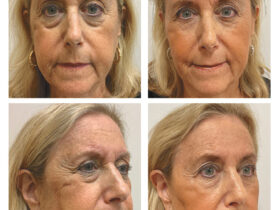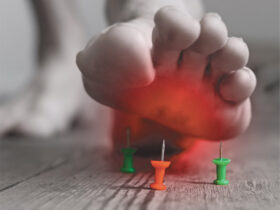Many people are concerned about which mask is most effective, how can we stay safe and the safety of wearing masks for long periods of time. We spoke to Board Certified, Pulmonologist, Dr. Salerno with Millennium Physician Group to find out what experts like him recommend for their patients and the public.
How effective is a face mask for preventing coronavirus from spreading?
Based on what we’re hearing from experts and studies, masks are very effective at reducing the spread of the virus. There is a downtrend in cases due to physical distancing and mask-wearing mandated by businesses and communities. We know that masks work in general, as surgeons and healthcare providers use them to prevent cross-contamination and to prevent the spread of bacterial and viral infections.
We are still uncertain of how long the droplets stay in the air because various factors can interrupt this process. Depending on the particle size, exhalation, humidity, and air density, the time airborne droplets can hover will fluctuate. More importantly, we know that wearing a mask can prevent the droplets from entering the nose and mouth.
Different types of masks and their effectiveness
There have been several studies looking at the effectiveness of the type of masks worn. We know that N95 masks are the best at preventing droplets from being inhaled. These are reserved mostly for medical professionals, but many people have them. If you are concerned about spreading the virus, it’s important to not have an N95 with a valve. If your mask does have a valve and you want to keep others safe, you can cover the valve with another mask or a shield of some sort.
The next best masks are blue surgical masks or medical-grade masks. They are efficient because they are highly water-resistant and have enough layers to keep particle droplets out. Cotton masks, bandanas, or other homemade masks can be useful, they just need to have several layers to provide defense against droplets filtering through the material. All masks should fit snuggly and those with a metal nose bridge are ideal to keep the mask secure. Plastic face shields do not offer the same protection and should ideally be worn with a mask.
Reducing transmission by wearing a mask is indisputable. Physical distancing is critical as well, but masks work to reduce the spread of the virus.
What should patients with breathing problems be concerned about wearing masks?
Many patients ask me about the safety of wearing a mask for long periods, or they are often concerned with breathing dysfunction or distress. If a person has an underlying lung condition like COPD or asthma, they may feel as though they are having breathing issues while wearing a mask, but it’s rare. Most people can wear masks for long periods, with no problems.
Surgeons sometimes wear masks for 8 to 9 hours at a time. Wearing a mask for hours is something many people need to get used to doing. However, if someone is having respiratory distress, I tell them to limit the time they need to wear their mask and take breathing breaks. For your safety and the safety of others, it’s vital to wear a mask, and if a person has an underlying lung condition, they are much more susceptible to COVID-19, and the severity of symptoms. If you genuinely have an issue with wearing a mask and have a lung disorder, you need to avoid large crowds and limit mask-wearing durations.
Asking others to help you with groceries or ordering online are viable alternatives, but wearing a mask is essential if you must be around others. Listening to the experts, those of us who deal with patients on a daily basis, is critical for health and prevention. The data is clear; wearing a mask helps to reduce the spread of the virus.
To schedule your appointment, please contact Millennium Physician Group today.
Edward L. Salerno, M.D.
Critical Care, Pulmonology, Sleep Medicine
Edward Salerno, M.D. earned his Bachelors of Science from Brooklyn College. He graduated cum laude with a degree in Philosophy. He then attended Saint George’s University School of Medicine in Grenada, West Indies where he earned his MD.
After medical school he attended the University of Connecticut, where he completed his internship and residency. He then completed one year as Chief Medical Resident at Hartford Hospital. Afterwards, he completed a fellowship at the University of Connecticut Health Center in pulmonary/critical care medicine.
Dr. Salerno joined CMG/Starling Physicians as an attending physician in Pulmonary/Critical Care and Sleep Medicine in 2005. Prior to joining the Millennium Physician Group, Dr. Salerno was Pulmonary Director of the pulmonary vascular disease program at Hartford Hospital. He was also Assistant Medical Director at Gaylord Specialty Healthcare in Wallingford, Connecticut.
In addition, Dr. Salerno has served as Assistant Professor of Medicine at the University of Connecticut School of Medicine, where he educated medical residents and pulmonary/critical care fellows.
Dr. Salerno is board certified in internal medicine, pulmonary critical care medicine and sleep medicine. He was awarded the Aldo Bellucci Teaching Award for Medical Resident Education, through the UConn Internal Medicine Residency Program.
Dr. Salerno is fluent in Spanish and Italian.
Board Certifications:
• American Board of internal medicine-internal medicine
• American Board of internal medicine-pulmonary medicine
• American Board of internal medicine-critical care medicine
• American Board of internal medicine-sleep medicine
Millennium Physician Group
Naples Pulmonology
6101 Pine Ridge Rd, Desk 23, Naples, FL 34119
(239) 315-7123









